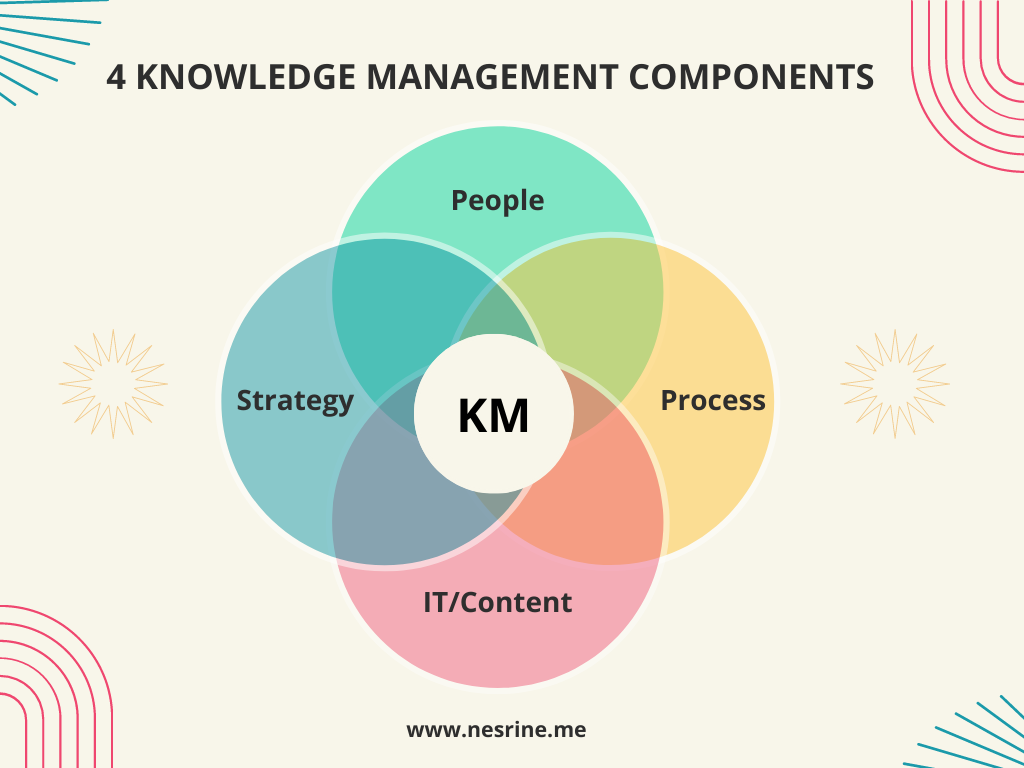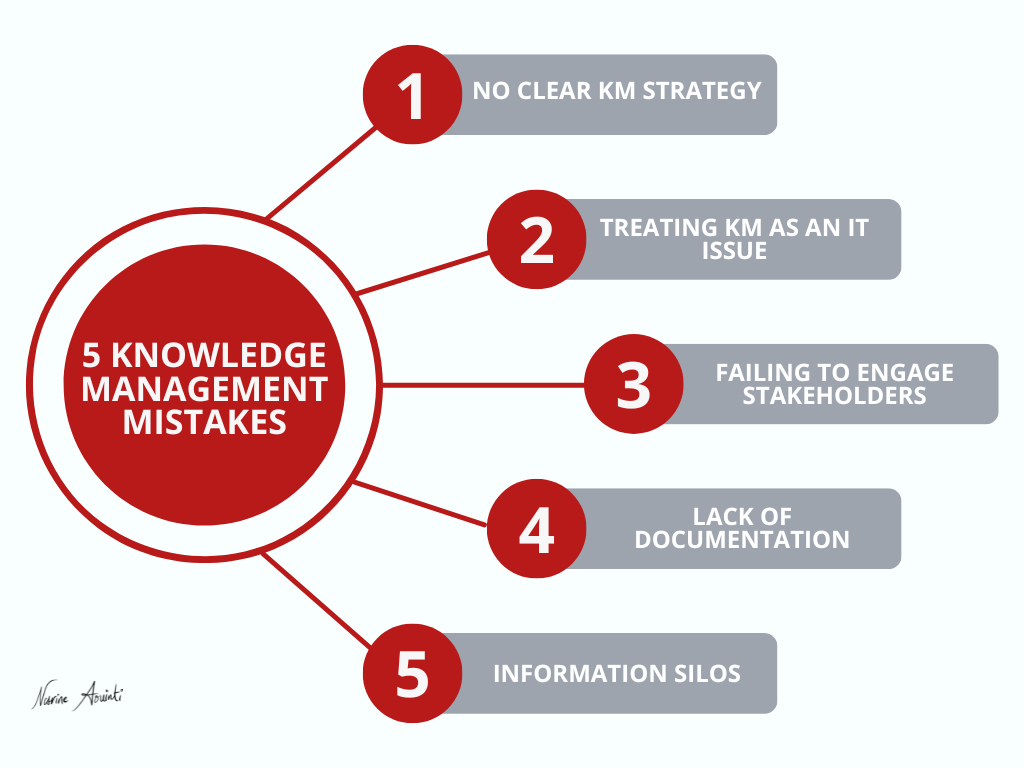Table of Contents
- Introduction
- Knowledge Management Mistake #1: No clear KM Strategy
- Knowledge Management Mistake #2: Treating KM as an IT issue
- Knowledge Management Mistake #3: Failing to engage stakeholders
- Knowledge Management Mistake #4: Lack of documentation
- Knowledge Management Mistake #5: Information Silos
- Conclusion
Introduction
Effective knowledge management is critical for organizational success in today’s fast-paced and competitive business environment. It enables organizations to capture, store, share, and utilize knowledge to make informed decisions, solve problems, innovate, and improve performance. Learn more about 7 surprising benefits of knowledge management.
However, many organizations struggle with knowledge management due to some common mistakes. This blog post will discuss five common knowledge management mistakes and how to avoid them.
Knowledge Management Mistake #1: No clear KM Strategy
One of the most significant mistakes organizations make is not having a clear strategy for knowledge management. Organizations may struggle to align their knowledge management efforts with their overall business objectives without a well-defined strategy. To avoid this, developing a comprehensive strategy that includes measurable goals, performance indicators, and action plans is essential. A clear strategy provides a roadmap for the knowledge management program, outlining the steps needed to achieve organizational goals. This strategy should be informed by the organization’s mission, vision, values, current capabilities, and the specific needs of stakeholders.
Knowledge Management Mistake #2: Treating KM as an IT issue
Another common mistake is viewing knowledge management solely as an IT issue. While technology enables knowledge management, it is not the only factor. Effective knowledge management requires a cultural shift where knowledge sharing and collaboration are promoted and rewarded. To avoid this, involve all stakeholders in knowledge management initiatives, provide them with the necessary tools and resources, and create opportunities to cross-pollinate ideas. Foster an environment of psychological safety where people feel comfortable sharing mistakes and half-baked ideas.

Knowledge Management Mistake #3: Failing to engage stakeholders
Engaging stakeholders is crucial for the success of knowledge management programs. Stakeholders bring valuable knowledge and experience to the table. Involving them in creating and implementing KM strategies and processes helps ensure program success and increases ownership and commitment. Engaging stakeholders build a knowledge-sharing culture, enhancing innovation and organizational performance.
Watch the video below by Mike Clayton to learn how to manage stakeholder engagement:
Knowledge Management Mistake #4: Lack of documentation
Properly documenting processes, procedures, and critical information is essential. If knowledge is not recorded and stored in a centralized system, it can be forgotten or lost completely when employees leave the organization. To avoid this, companies should establish clear documentation standards and storage procedures to capture essential knowledge from experts and make it accessible to others in the organization.
This article provides a compelling case study of the consequences that can arise from poor document management within a board of directors. It highlights the risks organizations face when they fail to maintain accurate and up-to-date records, underscoring the importance of adequate documentation practices.
Knowledge Management Mistake #5: Information Silos
The lack of information sharing across teams, departments, or locations is another common knowledge management mistake. An information silo restricts communication between information management systems, resulting in vertical communication and limited integration with other systems. This makes it challenging for the siloed system to collaborate with unrelated systems. Read more about information silos here.
When knowledge is held within silos, it is not effectively leveraged outside of those silos, limiting collaboration, repeating work, and isolating experts and expertise. To avoid this, companies should facilitate open communication and collaboration across teams and use enterprise social networks, messaging systems, and other tools to enable easy sharing of information and knowledge across departmental boundaries. Leadership support, incentives, and cross-team collaboration are crucial to successful knowledge sharing.
Conclusion
Effective knowledge management is essential for organizations to succeed in today’s business environment. However, common knowledge management mistakes can hinder its success. Organizations should establish a clear KM strategy to avoid these mistakes, involve all stakeholders, document critical knowledge, and break down information silos. By doing so, organizations can leverage their collective ability to drive innovation, improve decision-making, and enhance overall performance.

